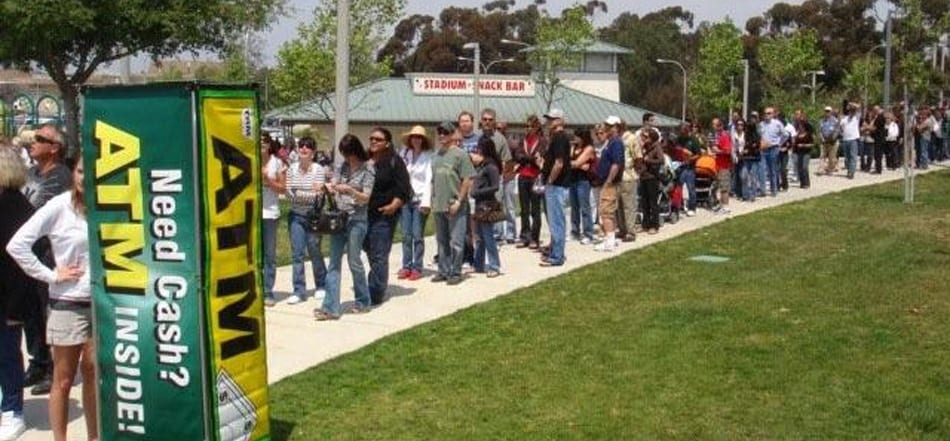UK Festival Awards has been dedicated to recognizing and celebrating the collective accomplishments of what it calls “the nation’s most beloved industry” for nearly 14 years. That “beloved industry” will be celebrated in more than 20 categories at the UK Festival Awards this November, including for Best Festival Production, Best New Festival, The Brand Activation Award and even Best Non-Music Festival. “We aim to have 50 percent of the UK festival events represented in one form or another in attendance,” Manchester-based Event Coordinator Michael Baker says, explaining why the ceremony has undergone a few big changes this year. “Historically,” Michael says, “it’s comprised of an awards ceremony and a conference, where we would dissect the most pertinent issues for the industry in the moment. Then in the night, we’d move on to a celebration of the industry’s collective achievements over the past year.” But this year the team have decided on cutting the conference in order to “distill the event back down into its core elements,” Michael says. They’ve also cut ticket prices in half, allowing them to be as inclusive as possible for grassroots and independent events and suppliers “who may be more in their fledgling stages,” Michael says. “We want to celebrate what they do on an artistic level.”  The UK Festival Awards also compiles its annual market reports, containing deep, invaluable insight into the British festival audience. As well as presenting key data like average age and income of festival goers, their team also found out what customers think of the price of tickets (21% think they’re overpriced), their favourite way to pay for drinks at a festival (cash was number one, cashless number two), and the top eight improvements customers want to see offered at the bar—first and foremost, free WIFI. Secondly, groups of six or more think they should get a discount at the bar, and many wish they could pay with a credit or debit card, or charge up their mobile phone. All relatively easy improvements that would likely go a long way towards improved customer satisfaction. And what about selling tickets to new customers? It turns out that most festival goers (28%) bought their tickets five months in advance, putting a prime marker on exactly when to engage potential new customers through social and traditional media platforms.
The UK Festival Awards also compiles its annual market reports, containing deep, invaluable insight into the British festival audience. As well as presenting key data like average age and income of festival goers, their team also found out what customers think of the price of tickets (21% think they’re overpriced), their favourite way to pay for drinks at a festival (cash was number one, cashless number two), and the top eight improvements customers want to see offered at the bar—first and foremost, free WIFI. Secondly, groups of six or more think they should get a discount at the bar, and many wish they could pay with a credit or debit card, or charge up their mobile phone. All relatively easy improvements that would likely go a long way towards improved customer satisfaction. And what about selling tickets to new customers? It turns out that most festival goers (28%) bought their tickets five months in advance, putting a prime marker on exactly when to engage potential new customers through social and traditional media platforms.  They collected this data by sampling 8,000 festival-goers, who took part in the annual UK Festival Census, which an extension of the UK Festival Awards’ voting platform. And although many events might already collect data about their attendees, as Michael points out, this data paints a much broader picture—one that everyone should see. “When trying to encourage involvement from festival goers, we say ‘this is your chance to have your opinions heard and have them distributed directly to festival organizers.’ So it’s a way of bridging the gap in a very general way that individual festivals wouldn’t be able to do, on an industry-wide level. So you get a broader feel of what the festival-going public think.” Right now, the team behind UK Festival Awards co-own a European version and an Iberian version. And while the smaller European version, which takes place in January alongside Norway’s Eurosonic Noorderslag, only courts around 300 attendees or so, Michael says the response is “much bigger.” You can buy tickets to the awards show on their website.]]>
They collected this data by sampling 8,000 festival-goers, who took part in the annual UK Festival Census, which an extension of the UK Festival Awards’ voting platform. And although many events might already collect data about their attendees, as Michael points out, this data paints a much broader picture—one that everyone should see. “When trying to encourage involvement from festival goers, we say ‘this is your chance to have your opinions heard and have them distributed directly to festival organizers.’ So it’s a way of bridging the gap in a very general way that individual festivals wouldn’t be able to do, on an industry-wide level. So you get a broader feel of what the festival-going public think.” Right now, the team behind UK Festival Awards co-own a European version and an Iberian version. And while the smaller European version, which takes place in January alongside Norway’s Eurosonic Noorderslag, only courts around 300 attendees or so, Michael says the response is “much bigger.” You can buy tickets to the awards show on their website.]]>

